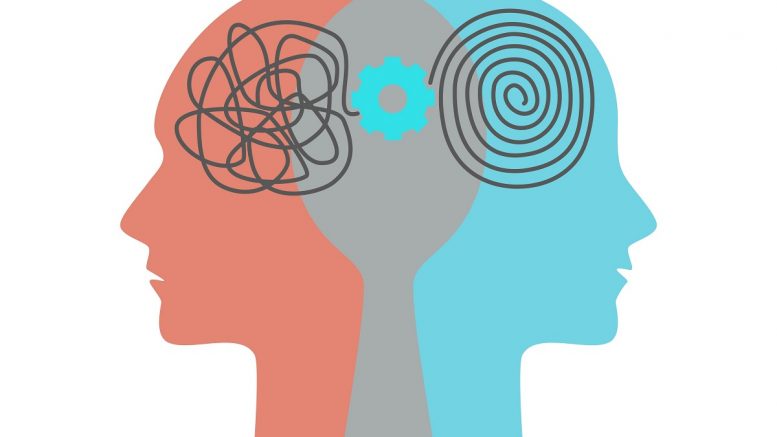Mental health has never been higher up the national agenda – a positive move for all. Yet, despite the increase in national strategies and initiatives to raise awareness of mental health and better understanding of how it is intrinsically related to physical wellbeing – it is also fair to say that discussing issues around day-to-day mental wellbeing and accessing help for them remains an uphill struggle.
As individuals, we are also under arguably greater pressure than ever before; a result of the COVID pandemic, staff shortages, geopolitical and socioeconomic unrest, and the rising cost of living. The responsibility (and opportunity) is, therefore, very much on leaders to drive improvements within their own organisations, on a micro level.
There are a range of strategies that leaders can embrace. From initiatives to help people better understand and manage their own mental wellbeing, forums for teams to come together and discuss issues, and social activities. They also include digital platforms that can both track health in a more holistic way, provide access to self-learning coping techniques and support, and – critically – provide us with data that will help inform future mental health care innovation, as Alison Meadows, Joint Chief Executive, Priority Digital Health, explains.
Societal Attitude
The way in which we think about and treat mental health has been transformed in recent decades. Who today, for example, would consider subjecting someone with a mental health problem to an asylum? Mental health care has moved in to the community; we have embraced new methodologies for studying mental health outside of a hospital setting, as well as the use of talking therapies. The net result on patients and mental health care has been hugely positive.
Perhaps the biggest positive change has been a shift in societal mindset. People and businesses are becoming more accepting of mental health issues and more aware of the need to support individuals with their mental- as well as their physical – wellbeing.
Yet, despite the huge increase in support for mental health through the likes of high profiles initiatives and charities such as Heads Together, Anna Freud Centre, and Every Mind Matters, when it comes to discussing and helping people cope with everyday stresses, whether they are workplace- or homelife-related, it can be difficult for individuals to know where to turn for help.
Moreover, given the number of well-documented, external pressures both people and businesses are under today, it is more important than ever that individuals feel well-supported in the workplace, both for their own wellbeing and for productivity and engagement levels. Nowhere more so is this the case than for healthcare organisations and those individuals delivering front line care to people who are amongst the most vulnerable in our population. Individuals who are well-documented to have professions that rank amongst the most stressful in the UK.
So how can business leaders drive improvements in mental wellbeing support within their own organisations and amongst their own staff?
Nurturing Wellbeing through Inclusiveness
One of the easiest ways to foster mental wellbeing in a workforce is through establishing a sense of community and inclusiveness.
Mental ill health can be aggravated through feelings of isolation. According to researchers from King’s College London, people with mental health conditions are disproportionately affected by loneliness, with one in five patients diagnosed with a psychiatric disorder reporting feelings of loneliness.
According to the Campaign to end loneliness, the group most likely to report feeling lonely are over the age of 65 with around 10% saying they feel lonely ‘all or most of the time’. In particular, people who had been widowed or had long-term illness or disability reported feeling lonely. Young people are also at risk. A recent survey by the Carers Trust found that 33% of young carers felt ‘usually or always’ lonely.
Feelings of loneliness can be readily lightened through engendering inclusivity, which has a key role in the workplace. Create regular forums or workshops – be they in person or through communication platforms – where people can be encouraged to share their thoughts and feelings about work pressures, and take comfort in each other. Encourage staff to undertake little acts of kindness and take regular walks together, taking a pause from the screen or work environment. Organise social get-togethers: coffee mornings, for example that can, to add even greater cause, be fundraising exercises for a charity of the team’s choice – or off-site team building. You may even want to consider getting in external advisors to offer pensions advice or tips on ‘how to eat well for less’. With a little imagination, the list is endless.
Individual Understanding
Equally important – though arguably more difficult – is to support staff in understanding their own mental wellbeing and patterns that might be associated with both positive and negative feelings, as well as how their physical and mental health are connected.
This might be something associated with their role. For example, have they got all the tools and training they need to feel comfortable in every aspect of their job? Is there an aspect of their role that might be causing anxiety? Are they happy with their interpersonal relationships at work? Or indeed, are pressures at home spilling over into the working environment?
Equally, particularly within healthcare, there might be a correlation between work and home-life that is causing imbalance. Is shift work causing poor diet and / or sleeping patterns that are affecting an individual’s overall wellbeing?
A basic understanding of what might be triggering mental unrest is the first step on the road to taking action to rectify it. But how?
Digital Tools
This is where the latest generation of digital health and wellbeing platforms and apps can help. Very few people have time or inclination these days to keep a diary of their emotions on a day-by-day basis. However, with a mobile or wearable app, logging feelings, behaviours and trigger points can be done in the moment, with little more than a touch of a button. Moreover, these digital tools have the benefit of algorithms that make it far easier to spot physical trends (e.g. sleeping patterns or tracking menstrual cycles) and correlate data to identify the root cause of a potential mental wellbeing issue.
In addition, the most advanced of these digital platforms will also come with access to tutorials or self-help videos on a vast range of issues, from how to stop smoking to even basic Cognitive Behaviour Therapy (CBT).
Data: the Future of Mental Health Care Innovation
One of the biggest technological challenges we face in mental health care at the moment is lack of data. Despite the increase in focus on it, mental health does not have access to large research budgets. However, if we can advance studies by looking at ever-bigger comparative data sets then we can hopefully jump forwards in our understanding of mental health.
Through the use of these digital platforms, we will gain access to data sets that are greater than ever before. The power of all this data will grow our collective understanding of the causes of mental health problems, whether – and which – current treatments work and how to invest money in the right places for the greatest benefit. That would have the potential to revolutionise how we view and treat mental health – indeed, holistic health – in the future.
Conclusion
Mental health and wellbeing is a huge challenge to address and it may feel like a challenge we each face in isolation. However, that could not be further from the truth. By taking steps towards a culture of openness in the workplace; aiding individuals in understanding their own mental wellbeing and how mental and physical wellbeing correlate; and embracing digital tools, businesses can, at a micro level, advance understanding at a macro scale. Now that is worth making it a priority.





